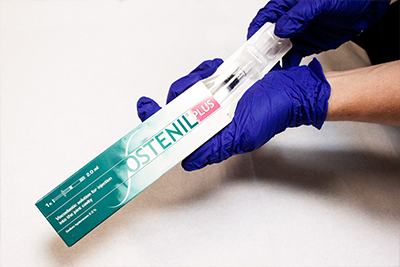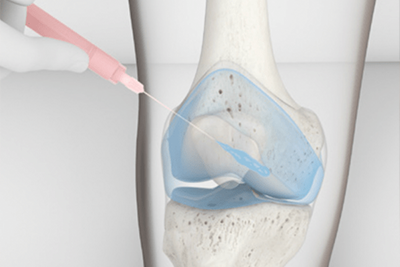If you’re experiencing pain or stiffness in your joints, or you’ve noticed inflammation or redness around the joint area, it’s possible that you’re suffering with arthritis. This is a potentially debilitating condition that affects one or more of your joints. Left untreated, arthritis can severely affect your quality of life.
Signs of Arthritis
Arthritis can manifest itself in different ways, and affect different joints. These are some of the common signs of arthritis to look out for.
- Pain in the joint, either intermittent or sharp
- Swelling in and around the joint
- A decrease in your range of movement
- Redness of the skin around the joint
- Weakness of the muscles in area of the joint
- In fingers and toes, you may develop a bump or bony outgrowth
- Stiffness in the affected joint, more noticeable first thing in the morning
The joints most commonly affected are knees, hips, fingers and the spine.
While there are two notable types of arthritis, osteoarthritis is the most prominent globally. In the UK alone it affects more than 20% of the population over 45 years of age. It’s caused when the cartilage that acts as a shock-absorber in your joints, and protects them from adverse pressure, wears away.
Rheumatoid arthritis is another less common form of arthritis. It’s an autoimmune disease that occurs when your immune system attacks the soft tissue in your joints. This soft tissue is called synovium, and it’s responsible for lubricating the joints to allow for smooth movement.
Although neither form of arthritis is curable, there are many treatments to alleviate symptoms and prevent your joints from further deterioration. Medication and physical therapy will have some effect but making certain lifestyle changes can also help and will improve your overall wellbeing. One major change that you can make to your lifestyle is your diet.
Changing your diet is no substitute for either medication or physical therapy, and is best implemented in conjunction to these, particularly if your condition is severe. While the direct links between nutrition and arthritis are tenuous, at the very least your overall health will benefit from a healthy, balanced diet.
There is no special diet for arthritis, but if you follow our recommendations below, you may well find that you’re able to reduce your symptoms and lead a happier, less painful life.
Include The Five Basic Food Groups In Your Diet
You were undoubtedly taught in school about the importance of including all five basic food groups in your diet. As fast food has become so accessible, and our lives have become so busy, we lose sight of the value of a well-balanced diet. Here’s a reminder of the basic food groups and what they include.
Fruit and Vegetables</h3
Nutritionists recommend eating five portions of fruit and vegetables each day. This may seem like a rather daunting task, I mean, five apples or oranges is a lot of fruit! It might help you to know the following:
- The fruit or vegetables don’t have to be fresh. Frozen also counts towards your five a day.
- It can be included in dishes like curries or stews, and doesn’t have to be a separate portion.
- Tinned and canned fruits and veggies also count, and should ideally be in natural juice or water. Try and avoid added sugar and salt.
- Fruit juice and smoothies, up to a combined 150ml, count as one portion.
Including a wide variety of fruit and vegetables in your diet will be more beneficial than a limited range. Berries are particularly beneficial for arthritis sufferers. They contain antioxidants that help to reduce inflammation.
Starch
Included in this food group are bread, potatoes, cereals, rice & grains and pasta. Starchy foods are a great source of energy as they provide the bulk of the carbohydrates that we need in our diet. They also provide a range of other important nutrients, such as fibre, calcium, Iron and various types of vitamin B. Studies have proved that a higher fibre intake can lower your risk of experiencing painful arthritis.
Dairy
Dairy products, including milk, are known to provide much of the protein and calcium needed in a balanced diet. We include soya milk, soya yoghurt and soya cheese in this food group as they are excellent dairy alternatives.
The fat content in dairy products varies quite a bit. Always check the amount of fat included in a product, especially the level of saturated fat as this can increase cholesterol.
Protein
Good sources of protein include pulses (beans, lentils and peas), fish, eggs and meat. Vegetable-based sources of protein, such as tofu, bean curd and Quorn, are included in this group as well.
Protein promotes muscle health, while beans in particular contain antioxidants and anti-inflammatory elements that can assist arthritis sufferers.
Fat
A small amount of fat in our diets provides essential fatty acids that our bodies are unable to produce. We need fat in our diet to absorb fat-soluble vitamins, specifically vitamin A, vitamin D and vitamin E.
Saturated fat can have an adverse effect on arthritis, but fats high in omega-3 assist in protecting your joints. Unsaturated fat is the best kind of fat to include in your diet as it lowers cholesterol and lessens your risk of heart disease.
Foods To Avoid
In addition to focusing on the best foods to eat for a balanced diet, there are some foods that you should avoid if you’re suffering from arthritis.
Processed Foods
Pre-packaged foods, fast foods, biscuits & snacks can contain trans fats. Although trans fats are needed to preserve the processed food, they trigger the body’s defence mechanism causing inflammation.
Gluten
If you suffer with Celiac disease, you know to try and avoid gluten. Eating gluten will usually result in pain in your stomach and/or diarrhoea. The pain can also affect your joints which, if you already suffer from arthritis, will exacerbate this condition.
Refined Carbohydrates
We find refined carbs in foods like white bread, white pasta and crackers. These foods cause blood glucose to increase, leading to inflammation. They have very little nutritional value and can easily be substituted with similar wholegrain products.
Refined Sugar And Sugar Alternatives
Sweets, fizzy drinks, pastries and chocolate, as much as we love them, contain refined sugar that triggers an inflammation-causing protein to be released in the body. Avoid other sugar derivatives like sucrose, fructose or maltose in products.
Certain substitutes for sugar, such as aspartame and sucralose, can also cause inflammation in people with sensitivities.
Omega-6 Fatty Acids
Omega 6 is healthy in small doses. If too much of this fatty acid is consumed, it can cause chemicals to be released into the body resulting in inflammation and a deterioration of the affected joints.
High-fat Dairy Products
Dairy products high in saturated fats, like cheese, butter, cream cheese and margarine, are definite triggers of inflammation and should be avoided or eaten in small amounts, if you suffer with arthritis.
Avoiding these inflammatory foods will not only ease the symptoms of arthritis, but will also have a positive effect on your overall health.
Foods You Should Eat
If it seems like we’re taking all the fun out of eating, don’t despair! Not all foods are bad for your arthritis. Some foods are extremely beneficial and should be included in your diet owing to their capacity to strengthen your bones, boost your immune system and fight inflammation.
Nuts
Nuts are an excellent source of protein, magnesium and zinc. They also contain alpha-linolenic acid, which is an omega-3 fatty acid with great immune-boosting properties.
Garlic & Onions
These foods boost the immune system and have strong anti-inflammatory properties. Garlic in particular is a very health component of any diet and is known to fight cancer and lower the risk of heart disease.
Ginger
This is another food that’s great for overall health, with superb anti-inflammatory properties. Including ginger in your diet, whether in food or hot drinks, can reduce your pain from arthritis and lead to better joint function.
Green Tea
Green tea is jam packed with antioxidants that assist in reducing inflammation. It also assists in slowing down the deterioration of cartilage. In fact, all teas have some anti-inflammatory properties, but green tea is known to be the best for all around good health.
Spinach
This leafy vegetable is full of antioxidants and nutrients that assist the body in fighting disease. A study has shown that it contains a high level of kaempferol, an antioxidant that reduces inflammation, and can slow down the progression of arthritis.
Citrus Fruit
Citrus fruits are especially rich in vitamin C, which we need for growth and development. Among other health benefits, vitamin C can prevent inflammation and maintain health cartilage and bones. It also assists the immune system to function properly.
Olive Oil
Olive oil is a great addition to your diet, because of its anti-inflammatory properties and ability to reduce joint pain. Extra virgin olive oil is preferable, as it is less refined and therefore likely to have a better effect.
It’s easy to see that diet can play a very important role in managing pain and inflammation from arthritis. There’s no need to suffer unnecessarily. While medication and physical therapy play a large part in controlling your arthritis, the addition of a few key ingredients into your diet will greatly to benefit your movement and overall health.
Related Articles
- Osteoarthritis and Arthritis, Similar But Very Different
- Osteoarthritis Management and Self Care
- More about Arthritis
- Chronic Pain Can Be More Harmful Than You Believe
- How does our Diet Affect Pain




























